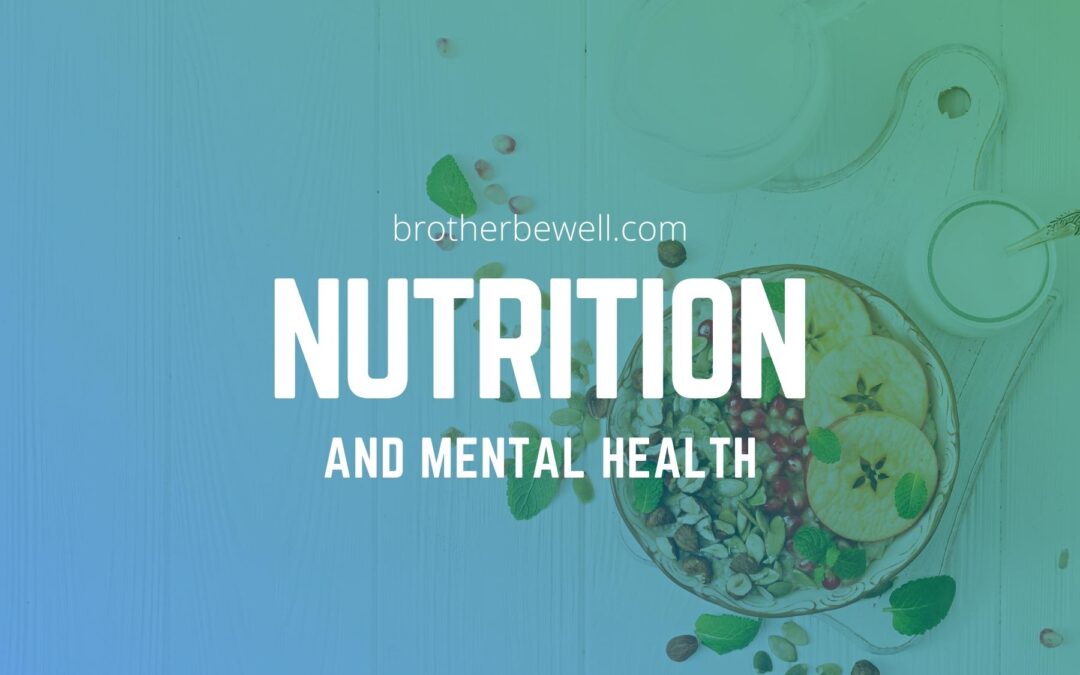How do you feel when you go outside for a walk, go to the gym, do yoga, or even do household chores? In addition to feeling a sense of accomplishment that you actually did something for your health, do you notice that you also feel calmer and happier? This is because exercise releases endorphins that send signals to your brain to reduce pain and increase your sense of wellness. Now researchers are establishing that nutrition and dietary factors also have a significant effect on mental health and wellness. Vitamins and minerals important to your mental health include Omega-3s, Zinc, B Vitamins, Folic Acid, and Magnesium.
Refined sugars found in candy, cake, cookies, juice (even orange juice), white bread, and other starchy foods can have the effect of boosting your energy and mental clarity in the short-term (for under 30 minutes, for example), but all reduce mental clarity quickly thereafter. High glycemic foods such as these make you feel hungrier and can negatively impact your mood over the long term. Eating a diet full of lower glycemic foods such as bran, seafood, olive oil, lean bacon (turkey or Canadian), some fruits, vegetables, and lean meat can decrease hunger and improve mental clarity. The Mediterranean Diet has been scientifically proven to offer mental health benefits, in addition to weight loss benefits, due to the prevalence of lower glycemic foods.
Nutrition and diet not only affect mental health in generally healthy people, but also those who have been diagnosed with serious mental health disorders. Mental illnesses such as depression or bipolar disorder may be accompanied by changes in eating habits, such as an increased intake of refined sugars, or a markedly decreased appetite resulting in nutritional deficiencies. According to Lakhan and Vieira (2008), essential vitamins, minerals, and Omega-3 fatty acids are notably deficient in Americans with mental health disorders.
Treatment non-compliance is a major problem for sufferers of serious mental health disorders such as bipolar disorder and schizophrenia. Therefore, prescribing nutritional supplements may be a promising complementary or even substitute therapy to standard. Increasingly, researchers in the field of nutritional psychiatry are assessing the effectiveness of prescribing nutritional supplements and micronutrients for the treatment of various mental health disorders (Rucklidge & Kaplan, 2016).
More research is needed, but there is promising evidence that the following vitamins and minerals may help alleviate symptoms of the specified mental health disorders: essential fatty acids for ADHD in children (Chang, Jingling, Huang, Lu, & Su, 2016); N-acetyl-cysteine (NAC) for obsessive compulsive disorder (Oliver, et al., 2015); methylfolate for moderate and treatment resistant depression (Deans, 2016); a specialized daily supplement containing A, B, C, D and other vitamins and minerals for bipolar disorder and obsessive-compulsive disorder (OCD) (Kaplan et al, 2001; Rucklidge, 2009). See Rucklidge and Kaplan (2013) for additional information about clinical trials evaluating the use of supplements for individuals across the autism spectrum, autism in children, bipolar disorder, ADHD in children, and for addiction.
It’s worth taking a closer look at the link between nutrition and mental health if you are suffering from anxiety, depression, or other mental health problems, or even if you are generally healthy and want to prevent health-related problems. The positive benefits will last a lifetime.



